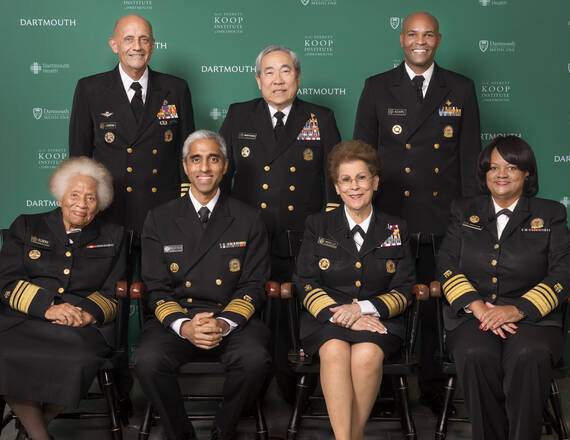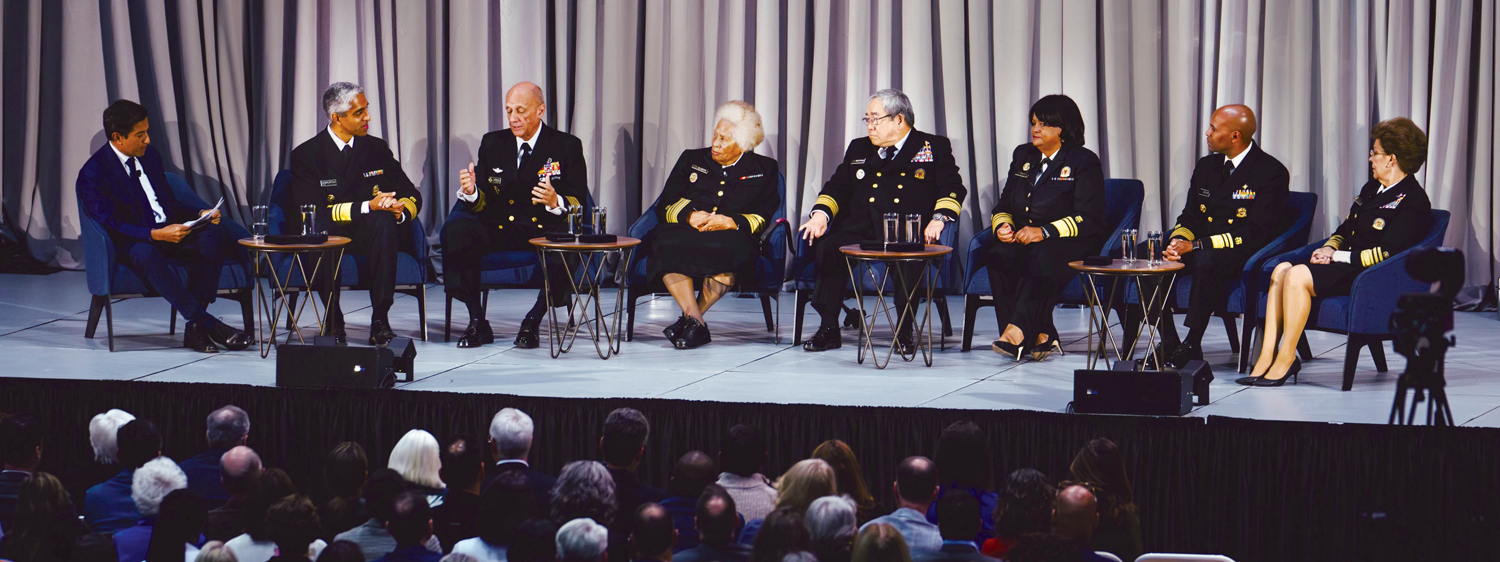Putting Mental Health First: America’s Top Doctors Discuss National Crisis
Mental health has taken center stage in public health discourse, with the nation’s top doctors leading the charge. In a rare, historic event, all of the living former and current U.S. Surgeons General convened for a panel discussion about the future of mental health and wellness organized by Dartmouth Health and Geisel School of Medicine on Sept. 28. The event was the first time that the group had gathered together in 25 years.

During the meeting, the Surgeons General spoke openly about the cracks in mental healthcare in the United States, cited bleak statistics, and shared personal stories of grief, mental struggles, and isolation. Indeed, current Surgeon General Vivek H. Murthy described the increasing sense of disconnection and loneliness in society as “a moral crisis.”
But, these leading doctors said, mental health shouldn’t be considered only in moments of emergency.
“We want to recognize when people have problems,” said Regina Benjamin, MD. She added that it's also important for people to seek out opportunities during healthier times to “build resilience.” Benjamin served as Surgeon General from 2009 to 2013 and was awarded an honorary degree from Dartmouth in 2010.
“You go to the gym to get stronger; you don’t go to the gym because you’re hurting. It’s the same thing for mental health," said Benjamin, who has advocated for mental healthcare being integrated into primary care and daily life.
The most important tools you need to be a healer are the ones that you had before you came to school. It’s that ability to be kind, to be generous, to give and to receive love.”
—Vivek Murthy, MD, Current Surgeon General of the United States
Student feedback about the event reinforced the importance of discussing mental health on such a public platform. Much of the panel conversation revolved around the need for connection and how vital it is that we are simply kinder to each other, which resonated with students in attendance.
“I’m not usually a very emotional person, but I felt like I could be moved to tears by what [Murthy] said at the end, and that is going to stick with me for the rest of my time at Dartmouth—just to be a force of love in the world instead of being a force of powerfulness, because that’s not what’s really going to move our community,” said Avi Singh ’26.

The Surgeons General also spoke about medical practitioners facing their own mental health struggles and needing to extend their care to themselves and one another.
“In medicine, you are going on your own—the focus is on serving others without serving yourself,” said Geisel first-year medical student Peggy-ita Obeng-Nyarkoh. “I’m glad to see the university and the people in positions of power recognize the challenges of young people and physicians in training.”
The conversation concluded on a hopeful note, as Jerome Adams, MD, MPA, FASA, who served as the Surgeon General from 2017 to 2021, said togetherness will ultimately help us change the crisis in this country.
“We will not treat our way out of this problem,” Adams said. “We’ve put a lot of focus on more providers and more treatment, and we do need that. But from a public health standpoint, we know that only about 20 percent of what determines your overall health, mentally and physically, happens in a hospital or a clinic. The other 80 percent happens in communities that are connected.”
To learn more about the Surgeons General visit and watch a recording of the full panel discussion, go to dartgo.org/surgeons-general.